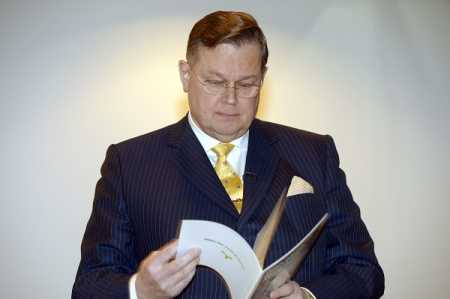|
Mon, 27 Apr, 2015 12:00:03 AM FTimes- Xinhua Report by Juhani Niinisto, April 27
Last week Metsä Group confirmed its plan to build a bio-product mill in Aanekoski, Central Finland. The 1.2-billion-euro project is the largest forest industry investment in Finland ever. The annual pulp production in Aanekoski will be about 1.3 million tonnes, of which 800,000 tonnes will be softwood pulp and 500,000 tonnes hardwood pulp. Kari Jordan, President and CEO of Metsä Group, singled out China as a key market area for the produced pulp. Besides the investment in Aanekoski, there are at least two more projects for pulp production in consideration by other companies. One is envisaged for Kuopio, Eastern Finland and the other for Kemijavi, further north. The turnaround of forest industries has surprised Finnish analysts. Lauri Hetemaki, assistant director of the European Forest Institute (EFI) and a specialist in forest industry foresight, admitted to the Finnish weekly Suomen Kuvalehti that he had not expected "a pulp industry investment of this magnitude" would still be possible in Finland. The Nordic country had been focusing on IT products and services and clean technologies for its economic growth until very recently, when they found the forest industries might quickly assume its traditional role as a driving force. In the past decades, many print paper producing plants were closed and quite a few pulp plants were terminated in Finland due to declining demand. However, an unexpected increase of demand for soft tissue and packaging materials especially in Asia has now created new prospects for pulp production. Reijo Heiskanen, chief economist of the OP Pohjola banking group, said the thought about forest industry as "a sector of the sun set" was clearly wrong. The chief forest economist of the PTT Economic Research Institute Matleena Kniivila told Finnish news agency STT that "economies are growing in Asia and there is increasing need there for pulp based products such as package materials and soft tissue."
Minister for Labor Lauri Ihalainen said the decisions would pave the way for the future of Finland "as a country of green gold". Prime Minister Alexander Stubb said the decision was an indication of the fact that Finland is worth investing in. International factors have favored Finland. Hetemaki of EFI pointed out that Russia did not develop as a producer as it had been assumed in Finland. "In 2008-2009 there were expectations of a strong growth in paper and pulp production in Russia, but that did not happen. It has given space to other producers of soft pulp," Hetemaki said. The icebreaking investment does not represent the will of international capital markets, but rather an initiative taken by Finnish forest owners. Finland's Metsä Group is a co-operative controlled by over a hundred thousand Finnish forest owners. Growth of wood in Finland has for years exceeded consumption and the supply available from forest owners has been greater than the demand by the industries. The new mill will increase the consumption of pulpwood in Finland by some 4 million cubic metres per year, or about 10 percent. The new bio-product mill will increase the annual value of Finland's exports by 0.5 billion euros, and generate an income of more than 0.5 billion euros annually, the company predicted. The actual mill will employ 200 people, and the operational value chain will give employment to 2,500 people. Traditionally, Finnish forest industrial plants produce electricity from waste wood. The new facility will produce more energy than it will need, as well as other bio products such as tall oil and turpentine. The Finnish government has assisted the Aanekoski plant with 32 million euros as investment support for renewable energy, and will also improve the transport infrastructure, especially the railroad connection to the port of Helsinki. More News
|
|
Finland Times
| Friday, 23 January, 2026 |



